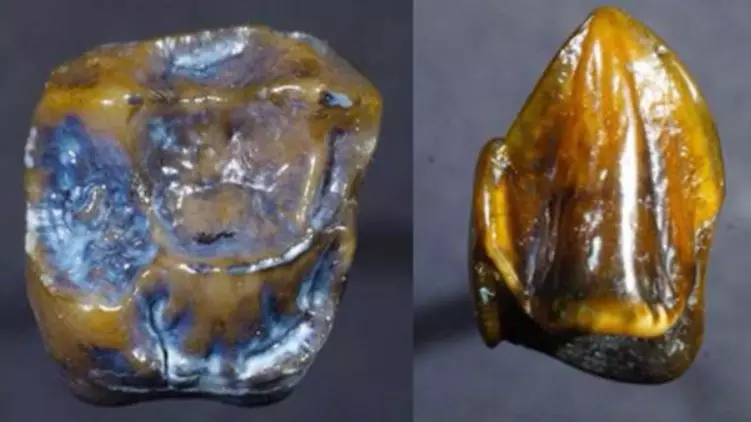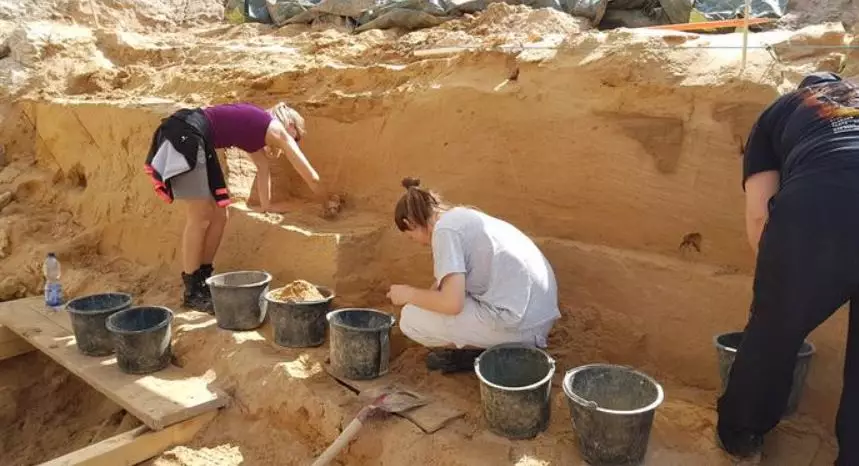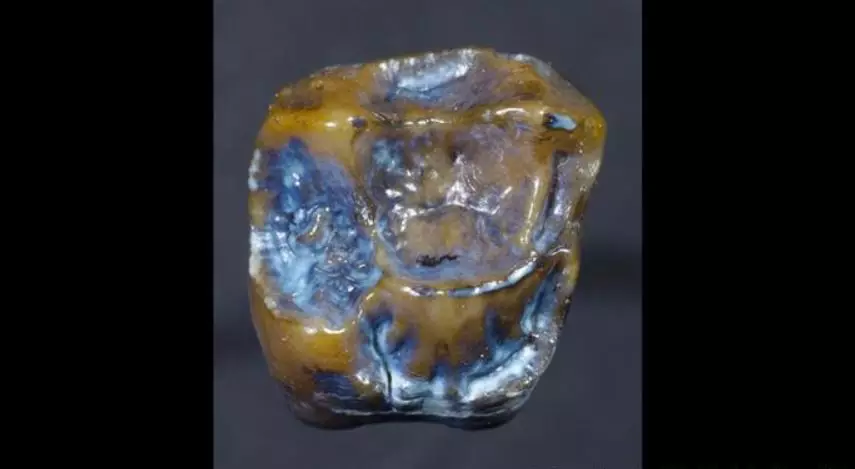
A set of fossilised teeth found by archaeologists in Germany have the potential to completely 'rewrite' history as we know it.
The teeth, belonging to an early human ancestor, once thought to have had its origins in Africa, were discovered in a riverbed near Eppelsheim.

Credit: The Museum of Natural History in Mainz
Advert
However, the unexpected geographical location of the teeth wasn't the only thing that has been getting researchers excited. The remains are thought to date back as far as 9.7 million years, putting them several million years before their African counterparts.
Herbert Lutz, director at the Mainz Natural History Museum and head of the research team, told local media: "They are clearly ape teeth. Their characteristics resemble African finds that are four to five million years younger than the fossils excavated in Eppelsheim.
"This is a tremendous stroke of luck, but also a great mystery."
Advert
The find casts doubt on the 'out of Africa' theory, which proposes that all human life began on the continent.

Credit: The Museum of Natural History in Mainz
Advert
At a press conference announcing the discovery, the mayor of Mainz said the discovery could force scientists to reassess.
"I don't want to over-dramatise it, but I would hypothesise that we shall have to start rewriting the history of mankind after today," he said.
The research published on the find states: "In September 2016, two teeth of an up to now undescribed member of the Hominoidea have been uncovered from sediments of the Proto-Rhine River near Eppelsheim, Germany.
"Together with other finds from Eppelsheim and the Wissberg location, which is only 18 km away, these are the northernmost occurrences of Miocene primates in Europe.
"From all information gathered up to now, the question arises, if the newly discovered Eppelsheim species may be related to members of the African hominin tribe."
The discovery was so shocking that, initially, researchers delayed publishing it.
Scientists will now spend some time carrying out specialised tests to further asses the fossilised teeth, with findings expected to be published in the next few weeks.
From the end of October, the history-altering teeth will be displayed at the Rhineland-Palatinate state exhibition "vorZEITEN", after which they will go on display at the Museum of Natural History in Mainz.
The area where the remains were found is known to be a fossil hotbed.
The remains of an extinct type of horse were found close to the fossils, which helped scientists to be able to date them effectively.
Featured Image Credit: The Museum of Natural History in MainzTopics: World News, Africa, History, Germany